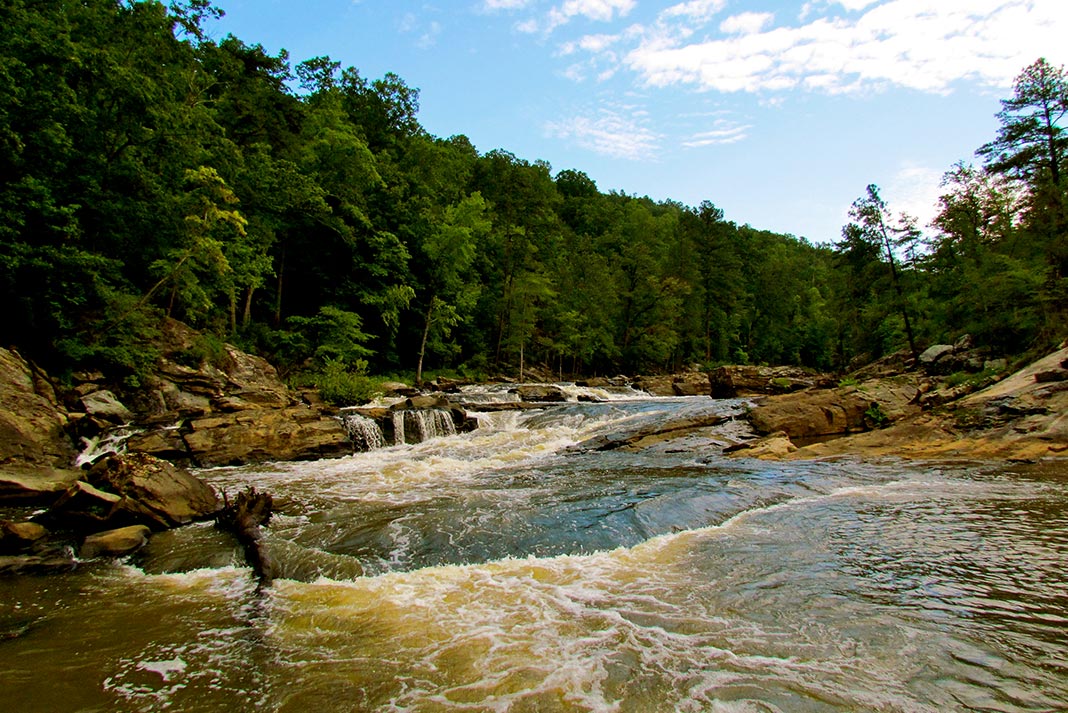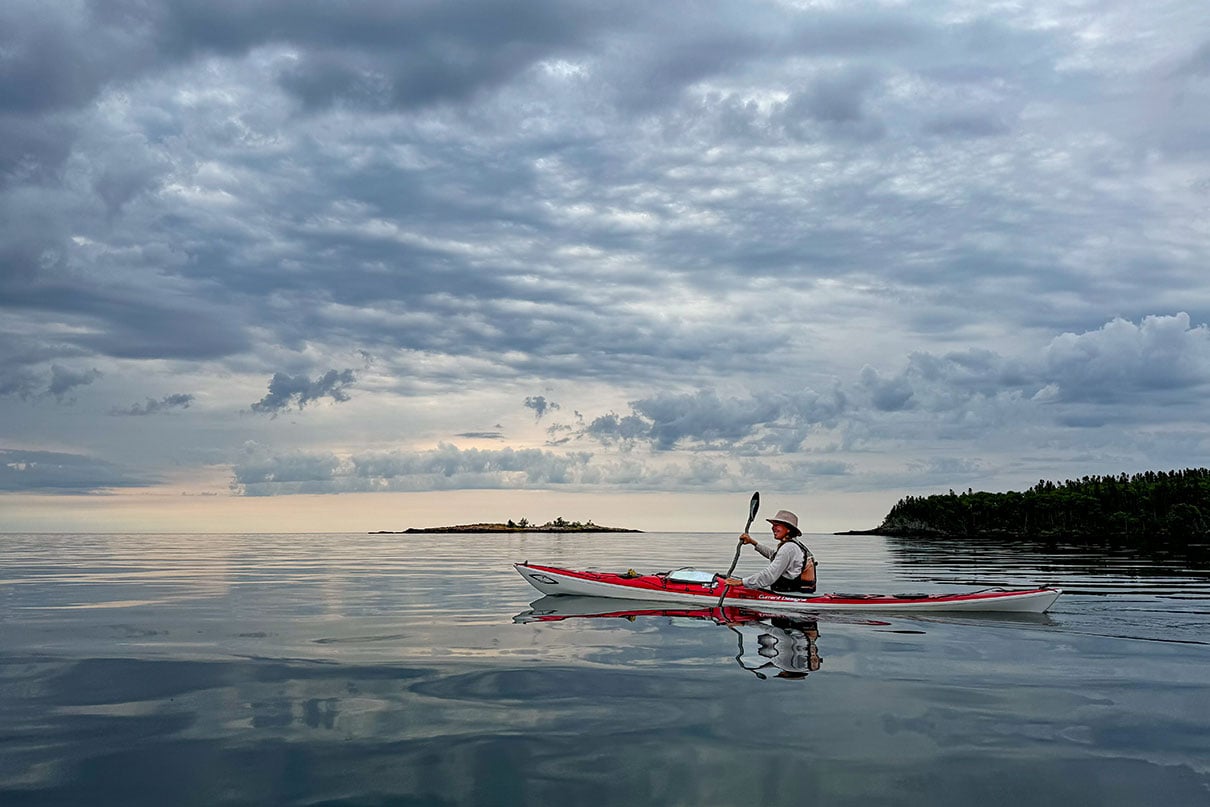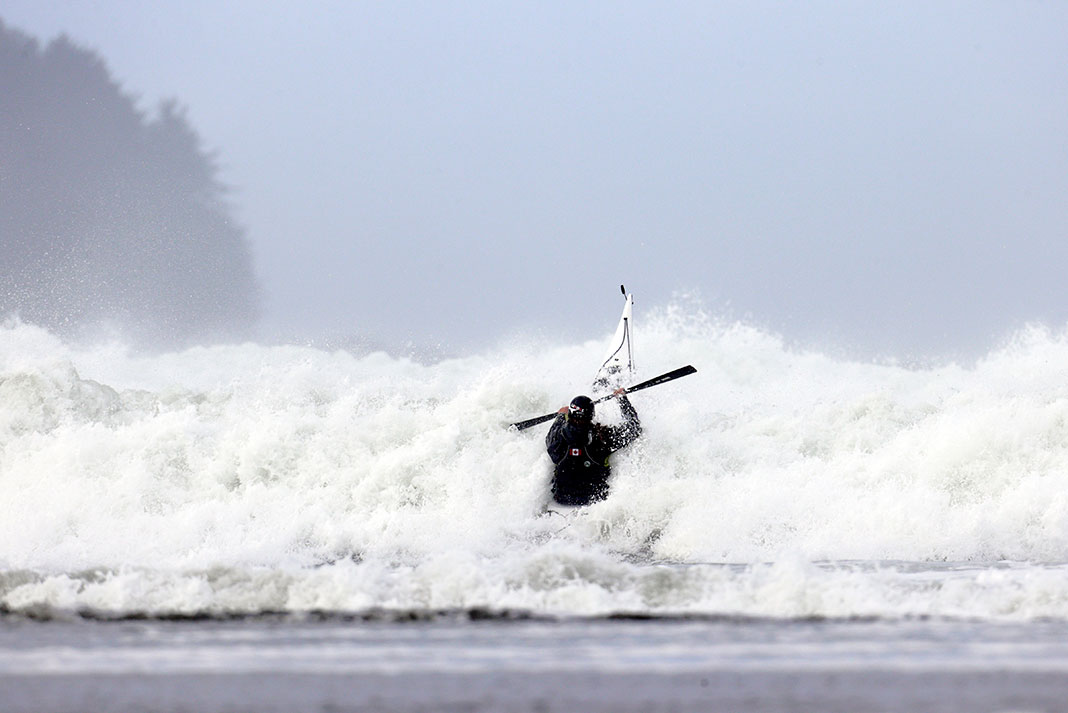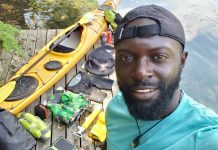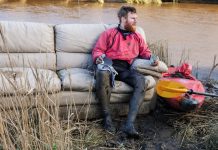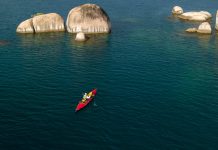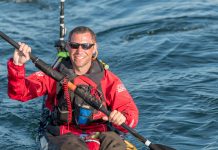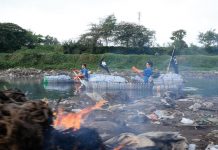Following a move to the East Coast, Dale Williams developed a fascination with riding the chaotic beach waves of Georgia’s now-famed Tybee Island, opening up new terrain for a sport he’d discovered quite by accident. When Williams co-founded Sea Kayak Georgia out of his Tybee home in 1994, it was the only high-end retail and instruction center between New Jersey and Tampa. By the end of the decade, the sleepy barrier island was appearing on Top 10 lists for adventurous paddlers from coast to coast.
Q&A with Dale Williams on surfing the Tybee Triangle
1 Who talks about yaw?
I do, all the time. I came to sea kayaking from skiing, paragliding and competitive skydiving. I also spent six years as a fighter controller in the U.S. Air Force training programs. Yaw, pitch, roll—such great conversation starters. It’s become my default language for translating body-boat-blade relationships to my students. They either love it, or I get the blank stare.
2 What guides your approach to coaching?
I’ve had many great coaches and I learned from every one of them, but two aspects of training I never enjoyed were the boot camp-style emphasis on pass/fail performance and the use of ill-constructed on-water scenarios.
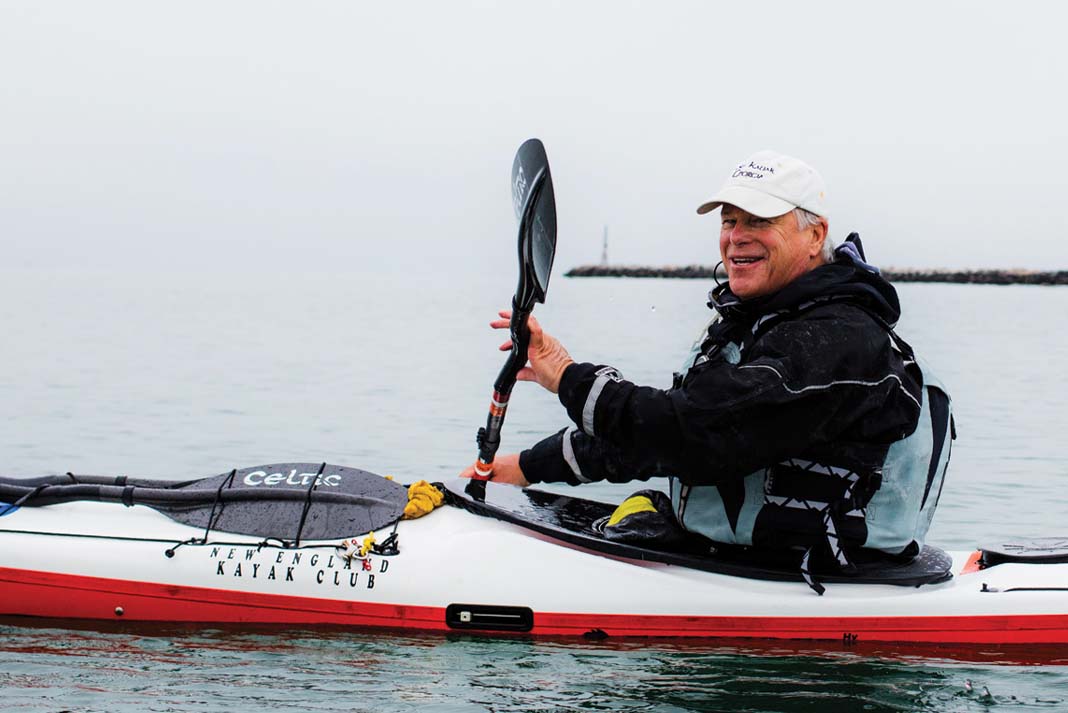
The stress management skills necessary for real world decision-making are not the same as those learned in manufactured situations. These develop good acting skills and a tolerance for illogical suspensions of reality, but they may also delay productive action in real situations.
I might ask students to surf with a cockpit full of water or with half a paddle, but I stopped asking them to pretend to be someone they’re not, or to pretend that environmental conditions exist that actually don’t.
3 When did you start surfing your kayak?
I started going out daily in the winter of 1994, when I first moved to Tybee Island. Steve Braden, who would help me found Sea Kayak Georgia, and I were temporarily unemployed, with lots of time on our hands.
We knew very little about kayaking and hardly anyone who intentionally tried to surf sea kayaks. But I was hooked as soon as the first wave walloped me in the face.
We learned that sea kayaks don’t fit on the face of a concave wave like surfboards or surf kayaks. Bury your bow or stern on a big wave and you broach. So it was back to lift, drag and stall—basic aerosports principles that work wonders for long boats on waves.
4 Where is Tybee Island’s most exciting paddling?
When I moved here to be with my wife Debbie, it was mostly backwater paddling by naturalists and camping enthusiasts. Kayaking then was an extension of backpacking culture.
I wanted to see if expeditions were feasible ocean side. With so many creeks and rivers emptying into our coastline, the sandy sea bottom moves and throws up new wave dynamics every day. These beach waves are confused and small compared to West Coast point breaks, but Tybee Island’s river mouths make for great tide races and learnable surf, year-round.
It was experimental at the time, but by offering rough water instruction, we got people into the surf zone and helped bring a new athleticism to the sport.
5 Why aren’t you bored yet?
Before I discovered surfing, I thought sea kayaking was one of those “safe to ignore” sports, with not much sense of urgency or risk management required. Shows how little I knew. After that first winter learning rough water, I remember thinking: not only does kayaking take you to places of amazing beauty, it’s also full of peak experiences.
Right now, I’m all about new paddling destinations and more wilderness. You know, it’s not wilderness unless other critters are above you in the food chain. So I’ve been organizing trips with Turnagain Kayak in Alaska and I’m collaborating with partners for excursions in Chile, Ecuador and possibly China.
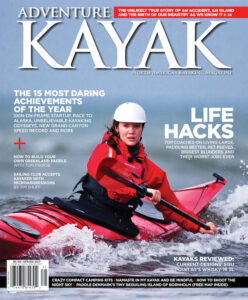
Williams: A free stern is a free mind. | Feature photo: Jan Bloch Photography/Sea Kayaking UK/NDK



